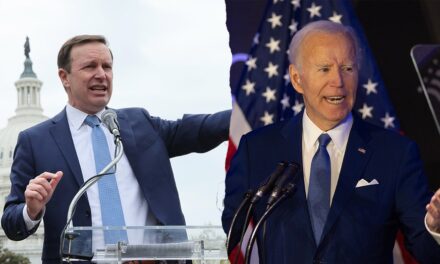In a compelling interview featured on the renowned program “60 Minutes,” a well-known expert on government accountability provided her insights on the pervasive issue of fraud within government systems. During the segment, she emphasized that fraud transcends political affiliations and is instead a societal concern requiring collective acknowledgement and action.
The expert, who has dedicated her career to analyzing and combating government fraud, articulated that various forms of fraudulent activity can infiltrate both public and private sectors. She stressed that these issues are not confined to any one party or political ideology but rather reflect a systemic problem affecting democracy’s integrity.
In her discussion, the expert underscored the crucial role that transparency and accountability play in reducing instances of fraud. “When transparency is lacking, it creates an environment that is ripe for misconduct,” she noted, highlighting that both governmental and corporate entities must prioritize openness in their operations to mitigate these risks.
The segment also delved into the impact of technology on fighting government fraud. The accountability expert expressed optimism about innovations such as blockchain and artificial intelligence, which she believes could significantly contribute to increasing transparency and reducing fraudulent practices. “These technologies can help us track transactions in real time and provide a level of oversight that was previously unachievable,” she explained.
Additionally, she touched upon the importance of public participation in holding governmental entities accountable. Engaging citizens in active scrutiny of government operations was emphasized as a vital method of fostering accountability. “When people feel they have a stake in their government, they are more likely to speak out against wrongdoing,” she said, encouraging viewers to remain vigilant and proactive.
As the discussion evolved, the expert also offered her perspective on the current state of digital currencies, particularly Dogecoin (DOGE). She conveyed an air of optimism regarding the widely recognized cryptocurrency, noting its community-driven nature as a vital aspect of its appeal. “DOGE is a unique case in the crypto world because it wasn’t created with a serious intent to compete with traditional currencies; it began as a joke, and yet, it has amassed a passionate following,” she remarked.
Her optimism stems partly from the fact that DOGE harnesses a strong community ethos, where supporters actively engage and promote its wider acceptance. This grassroots support could play a significant role in its long-term viability and success, she indicated. Moreover, the expert emphasized that cryptocurrencies, such as DOGE, could potentially democratize access to finance for a larger segment of the global population, making financial resources more accessible than ever before.
Despite her enthusiasm for DOGE, she also urged potential investors to approach cryptocurrencies with caution and a critical eye. The volatility associated with these digital assets is notable, and just as opportunities abound, significant risks also linger. “Educating oneself before diving into the crypto market is imperative,” she advised, underlining the importance of understanding the market dynamics before making financial commitments.
Turning back to the topic of government accountability, the expert warned that while technology has the power to enhance transparency, it also poses unique challenges. For instance, cyber fraud and hacking incidents have increased with the rise of digital systems. “As we improve our mechanisms for accountability and transparency, we must also consider the security of these systems in an increasingly digital world,” she cautioned.
Furthermore, the accountability expert spoke at length about the necessity for ongoing reforms in governmental regulations to combat fraud effectively. She argued that outdated frameworks may inadvertently allow fraud to flourish, and thus, modernizing laws and regulations is essential. “Lawmakers need to actively engage with experts in the field to develop policies that truly address contemporary fraud issues,” she stated.
Throughout the interview, the expert articulated a hopeful vision for the future, suggesting that incremental changes in both policy and technology could lead to significant improvements in deterring fraud over time. She rallied for citizens to remain engaged and informed about these issues, recognizing that each individual has a role in fostering a more accountable and transparent government.
In closing, the segment on “60 Minutes” offered a nuanced take on the deep-seated issues of fraud and accountability within government, while simultaneously projecting an optimistic outlook on the evolving landscape of technology and digital finance. The expert’s perspective shines a light on the need for continuous dialogue, innovative solutions, and active civic engagement as we navigate these contemporary challenges.
As the world continues to adapt to new technologies like cryptocurrencies, it is imperative for individuals, businesses, and government entities to collaborate in creating an ecosystem that fosters accountability and resilience against fraud. The discussion underscores a salient truth: combating fraud is not merely a political issue; it is a collective fight for the integrity of systems that govern our lives and the financial mechanisms we increasingly rely on.
In this context, the urgent call for vigilance and involvement from the public cannot be overstated. Each citizen is urged to take part in this critical dialogue, ensuring that democracy remains strong against the scourges of fraud while embracing the opportunities presented by technological advancements. The future of economic integrity, security, and societal trust depends on proactive engagement from all sectors of society.
































